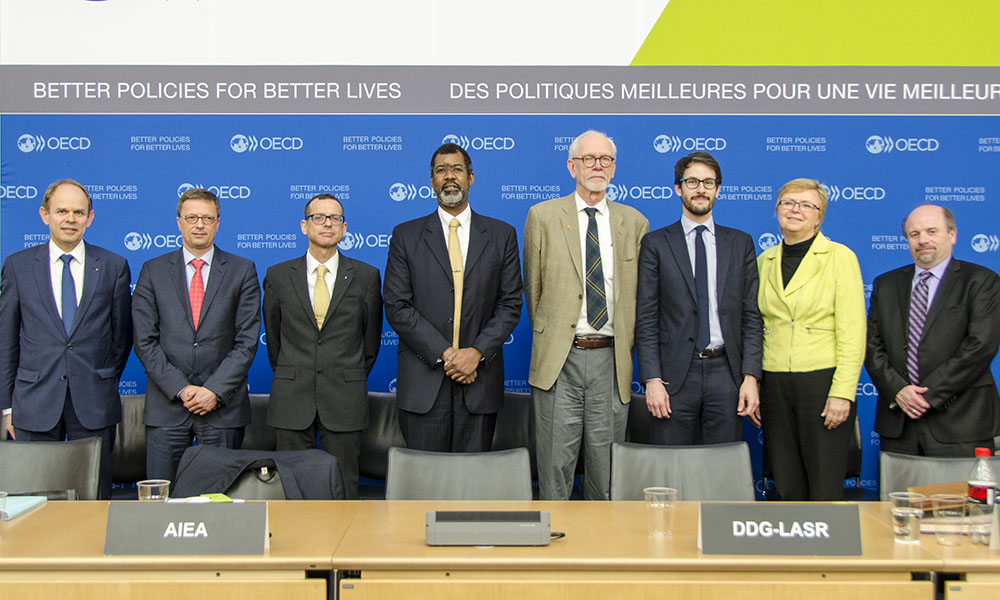 Spotlight on the financing of decommissioning
Spotlight on the financing of decommissioning
On 22 April 2016, the NEA Steering Committee for Nuclear Energy held a policy debate on the financing of decommissioning, an increasingly important issue in NEA member countries as commercial nuclear power continues into its sixth decade and a growing number of nuclear reactors are at or reaching the decommissioning phase. Speakers included Mr Simon Carroll of the Swedish Radiation Safety Authority (SSM), Mr Raymond Cron of the Swiss Administrative Commission of the Decommissioning Fund and the Disposal Fund for Nuclear Installations, Mr Louis du Pasquier of the French Ministry of Environment, Energy and Sea, Mr John Mauti of Ontario Power Generation, and Mr Paul Gunter of Beyond Nuclear (a US-based interest group). Participants in the debate recognised that there are differences in decommissioning funding and benchmarking processes across countries, and that there is no single best system that optimally fits all national contexts and legal frameworks. They reaffirmed the validity of the "polluter pays" principle to cover anticipated and unanticipated costs of the decommissioning of nuclear power plants in order to avoid placing burdens on future generations. The need to expand and improve cost benchmarking data was also highlighted.
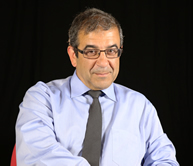 New senior appointment: Daniel Iracane, New NEA Deputy DirectorGeneral and Chief Nuclear Officer
New senior appointment: Daniel Iracane, New NEA Deputy DirectorGeneral and Chief Nuclear Officer
The NEA is pleased to announce the appointment of Dr Daniel Iracane as the new NEA Deputy Director‑General and Chief Nuclear Officer. Dr Iracane will support the NEA Director‑General to further enhance the technical excellence of the Agency's work and strive for greater horizontal collaboration both within the NEA and with relevant elements of the OECD. He will represent the NEA and its work in international fora to ensure close co-operation with member countries and act in the Director‑General's stead as needed. Read more.
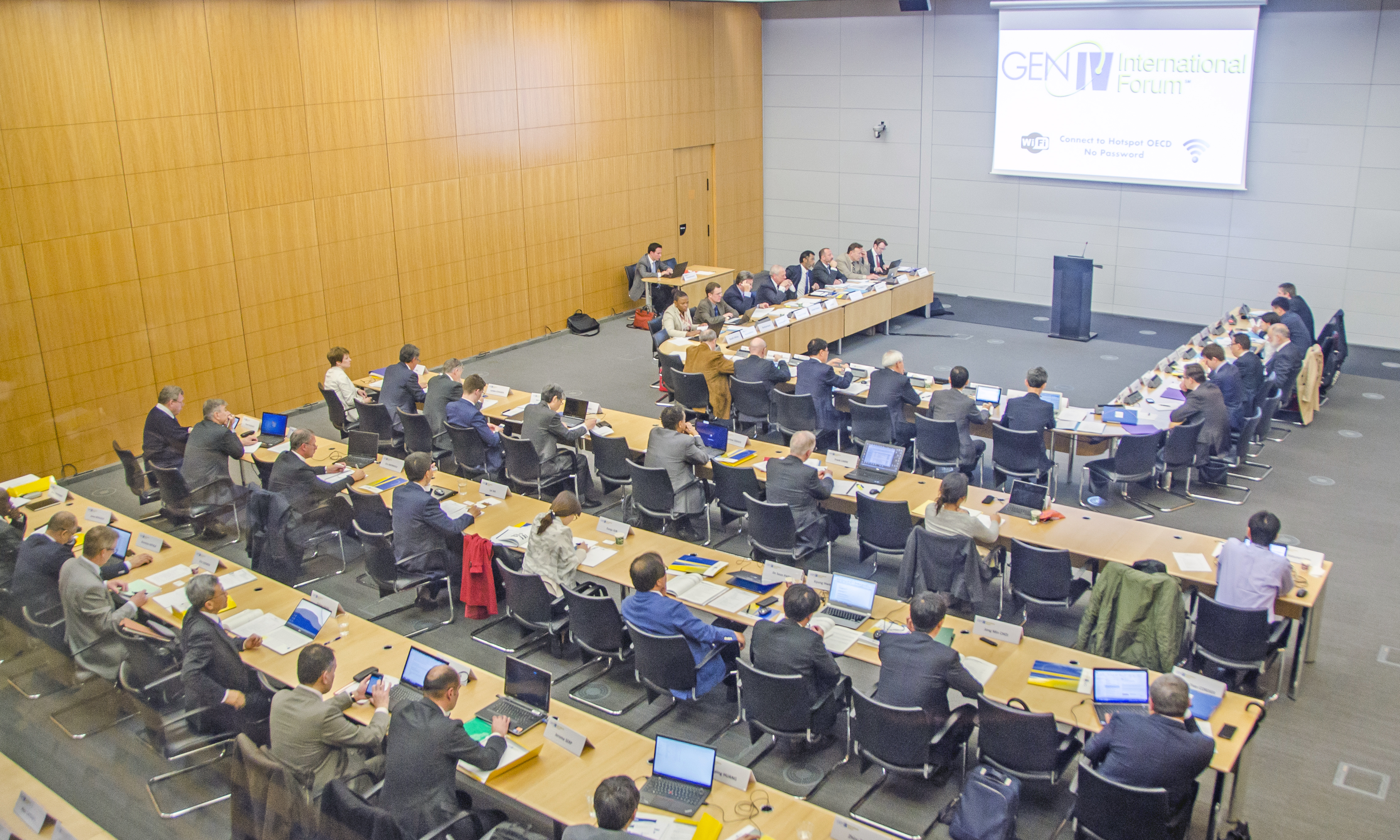 Generation IV International Forum (GIF): Policy Group meeting and Australian membership bid
Generation IV International Forum (GIF): Policy Group meeting and Australian membership bid
The Generation IV International Forum (GIF) Policy Group met on 27‑28 April 2016 in Paris and elected Mr François Gauché, Director of the Nuclear Energy Division of the French Alternative Energies and Atomic Energy Commission (CEA) as its Chairman for the 2016‑2018 period. Mr Gauché will be supported by three Vice-Chairs, Dr John Kelly, Dr Hideki Kamide and Dr Hark Rho Kim, with the respective missions of further engaging with regulators and technical support organisations on licensing and safety research needs for Generation IV nuclear energy systems, investigating market issues in collaboration with the GIF's Senior Industrial Advisory Panel, and co‑ordinating the GIF's interactions with other international organisations and initiatives. The GIF Policy Group members also unanimously voted to accept Australia's bid to join the GIF and thus become the 14th member of the Forum, along with Argentina, Brazil, Canada, the People's Republic of China, Euratom, France, Japan, Korea, the Russian Federation, South Africa, Switzerland, the United Kingdom and the United States.
International nuclear regulatory inspection practices
On 17-21 April 2016, the NEA Working Group on Inspection Practices (WGIP) held the 13th International Nuclear Regulatory Inspection Activities Workshop. Hosted by the Belgian nuclear regulatory body, the Federal Agency for Nuclear Control (FANC), and Bel V in Bruges, Belgium, the workshop was attended by 58 participants from 18 countries. It provided a forum for inspectors from around the world to discuss inspection practices and to exchange insights on current issues. Topics addressed included experience from inspection activities during the transition from an operating reactor to a defueled status with a commitment to permanently cease power operations, the inspection of modifications and the inspector's role in the enforcement process. The workshop proceedings will include commendable inspection practices to help nuclear regulatory organisations improve their inspection programmes.
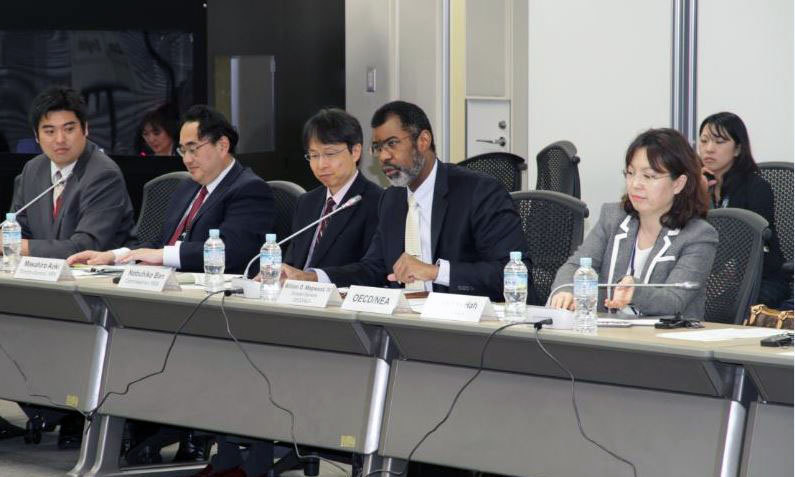
On 5 April 2016, the NEA Working Group on Public Communication of Nuclear Regulatory Organisations (WGPC) held its third international workshop in Tokyo, Japan, in collaboration with the Nuclear Regulation Authority (NRA) of Japan, the Korean Nuclear Safety and Security Commission (NSSC), the Korea Institute of Nuclear Safety (KINS) and the Indian Atomic Energy Regulatory Board (AERB). Participants included a wide range of stakeholders, including the media, communication experts, government officials and NGOs from Asian countries, notably China, India, Japan and Korea. Opening remarks were delivered by the NEA Director‑General William D. Magwood, IV, and Commissioner Nobuhiko Ban of the NRA. The main objective of the workshop was to stimulate co‑operation and to improve communication of nuclear regulatory organisations by better understanding stakeholders' perceptions, needs and expectations in the Asian region. The two previous workshops were held in France in 2014 with European stakeholders and in the United States in 2015 with North American stakeholders. Important findings from this workshop include the need for nuclear regulatory organisations to organise periodic and regular exchanges with the media and stakeholders not only during times of emergency, but also during routine periods in order to build strong relationships among all interested parties. The group plans to issue a comprehensive report compiling the results from the three workshops.
|
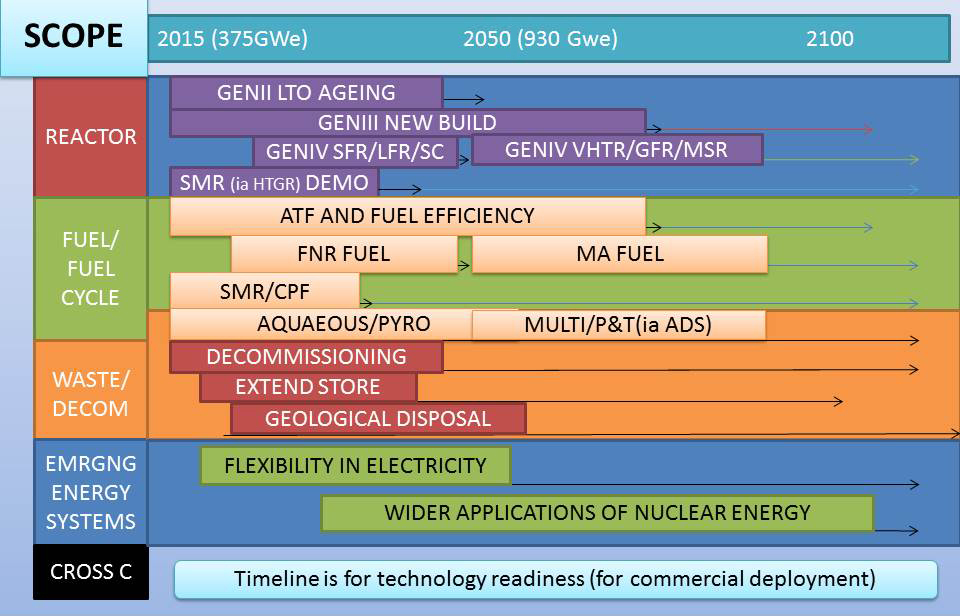 Nuclear innovation roadmapping
Nuclear innovation roadmapping
The NEA Nuclear Innovation 2050 (NI2050) initiative aims to define the main priority areas where R&D would be needed to enable the long‑term contribution of nuclear fission to a low‑carbon energy future towards 2050 and beyond. The initiative has recently convened a series of expert meetings reflecting the technical scope of the NI2050 roadmapping as displayed on the right. The nearly 100 participants in these meetings completed a set of templates for priority R&D issues/topics, as well as a summary of the outcomes of the meetings. They also provided views on major infrastructure needs and cross‑cutting topics. In the coming months, plans will be further analysed and discussed, along with the results of the NI2050 survey on current R&D programmes and infrastructures. At its forthcoming meeting in June, the NI2050 Advisory Panel Group is expected to give guidance on next steps in order to reach a consolidated view on key R&D priorities which would benefit from international co‑operation.
Regulating radioactive waste management and decommissioning
The NEA Regulators' Forum met on 11 April 2016 and discussed the framework for NEA peer reviews and expert feedback from member countries. Participants acknowledged the reviews as useful tools allowing for external assessments and also ensuring the credibility of national programmes. A key highlight of the meeting was the topical session on "Challenges to the regulator in maintaining competencies in radioactive waste management programmes", wherein participants specified the factors impacting competency and skills maintenance and development, including education funding and the revitalisation of educational programmes on waste management and decommissioning. Participants also reviewed the Committee's strategic direction, provided feedback on NEA research into "graded approach" implementation at national levels, and discussed establishing an initiative for a tri‑committee expert group to assess international nuclear liability instruments and transfers of liabilities.
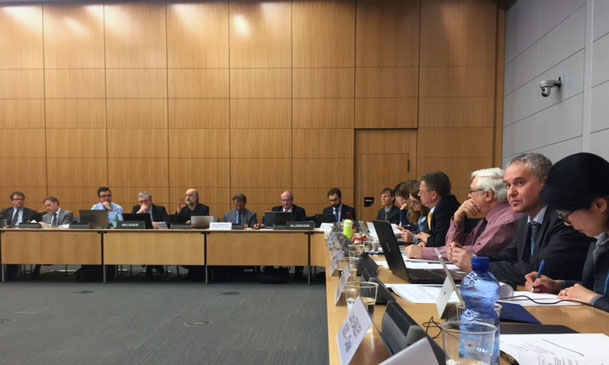 Highlighting safety culture in radioactive waste management
Highlighting safety culture in radioactive waste management
On 12-13 April 2016, the NEA Radioactive Waste Management Committee (RWMC) held its annual meeting and discussed its strategic direction. The meeting also featured topical sessions on "Safety culture in radioactive waste management" and on the "Management of low-level waste from decommissioning", incorporating views from both regulators and implementers. During the former session, participants discussed safety culture implementation and improvements, as well as future areas of focus, noting that the Committee would further explore how to apply safety culture to new projects, how to address it at the regulatory and legislative levels, and how to define it at the cultural level. The latter focused on the management of low-level waste from decommissioning and the existing possibilities for implementing clearance levels for all countries. It was decided that blanket implementation would not be feasible due to the varied nature of existing national programmes, but Committee members were interested in sharing experiences with each other.
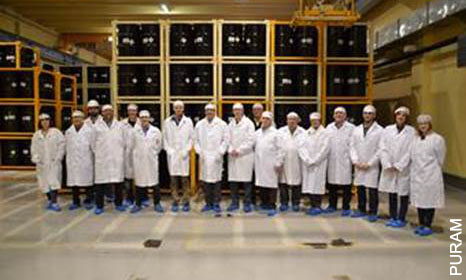 Radioactive waste repository metadata
Radioactive waste repository metadata
On 18‑19 April 2016, the NEA Radioactive Waste Repository Metadata Management (RepMet) initiative held a meeting hosted by the Public Limited Company for Radioactive Waste Management (PURAM) in Budapest, Hungary. RepMet is currently concentrating its efforts on the development of a data and metadata library for waste packages ready for disposal in a final repository. At the meeting, project contributors presented and discussed the steps forward for the data and metadata models included in this library. Participants agreed that the current versions of the two models are robust and will be included in a final project. They also decided to create two new working groups for the development of similar libraries on site characterisation and on repository design. After the meeting, RepMet members visited the National Radioactive Waste Repository, the PURAM disposal facility for low- and intermediate‑level waste in Bátaapáti, Hungary.
Programme on radiological protection and public health
The NEA Committee on Radiation Protection and Public Health (CRPPH) held its annual meeting on 13‑14 April 2016. A key portion of the discussions focused on updating the Committee's mandate and strategic direction to remain in line with the forthcoming NEA Strategic Plan being developed for the 2017‑2022 period. The Committee agreed that its new approach should devote more attention to co‑ordination and collaboration, both within the NEA and with other relevant international organisations. Participants also emphasised the importance of emergency and recovery management issues, risk communications and maintaining a state‑of‑the‑art view of radiological protection science, particularly with regard to combined risks, human capital and training issues, and environmental radiological protection. Following the discussions, the Committee adopted its programme of work for the coming year, which includes the new areas of legacy management and non-nuclear waste management. It also agreed to investigate possible areas of future work, including the communication of complex radiological protection concepts to non‑technical audiences, the development of an educational programme for passing on radiological protection heritage and international concepts, and further discussion of post‑accident food management.
NEA Education, Skills and Technology (NEST) Framework
NEA member countries are, collectively, world leaders in the use of nuclear technology and materials for a wide range of industrial, scientific, medical and energy purposes. The future use of such technologies appears to be increasing globally and there is a strong need to ensure that countries have the scientists and engineers needed to support their continued safe use. Spurring new specialists to become engaged in the nuclear technology field and to bring their creativity to innovate and expand the boundaries of our current knowledge is a key interest for many NEA countries. In partnership with its membership, the NEA is developing the concept of the NEA Education, Skills and Technology (NEST) Framework, which is aimed at addressing important issues in the areas of nuclear skills capability building, knowledge transfer and technical innovation within an international context. Under the NEST Framework, interested countries would support multinational projects that involve university students, professors and young professionals at research institutions. Further details of the implementation of the NEST Framework will be developed by a team of NEA member country experts as a cross‑cutting NEA activity.
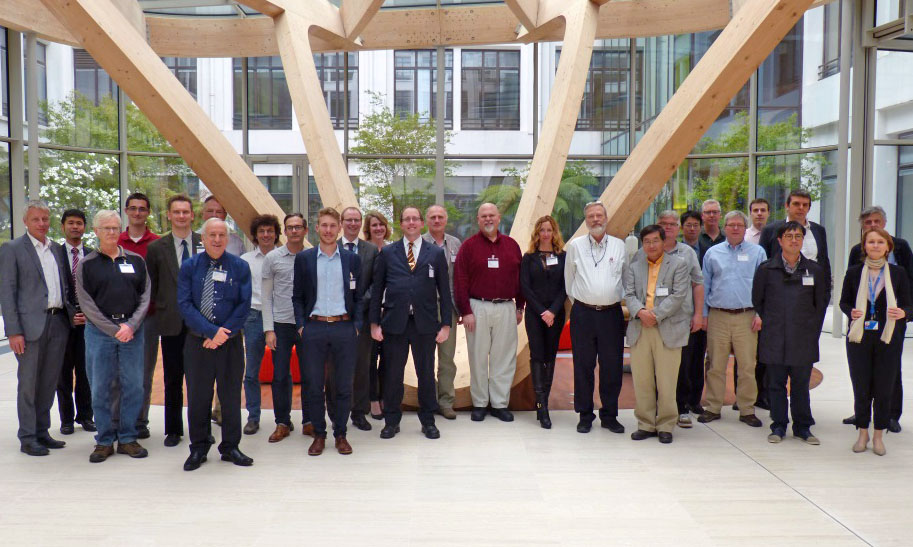 Experimental criticality and reactor physics benchmarks
Experimental criticality and reactor physics benchmarks
The NEA International Criticality Safety Benchmark Evaluation Project (ICSBEP) Technical Review Group held a meeting on 18‑19 April 2016. The purpose of the ICSBEP is to compile critical and subcritical experimental data into standardised benchmarks, which allows criticality safety analysts to validate calculation tools and cross-section libraries. The ICSBEP handbook serves as a reference for approximately 5 000 critical experiments performed worldwide. For the first time, this meeting occurred in tandem with the technical review meeting of the NEA International Reactor Physics Benchmark Experiments (IRPhE) Project held on 20‑22 April. This project aims to provide the nuclear community with qualified benchmark data sets by collecting reactor physics experimental data from nuclear facilities, worldwide, which are published in an annual IRPhE Handbook.
An online archive of previous editions is available here.
The monthly bulletin only lists new and updated material. It is distributed by e-mail to registered users of the Nuclear Energy Agency's Online Services. Registration is free; please use this link.